There’s a lot more to cherries than meets the eye. One might associate cherries with desserts, ice cream and chocolate, but it’s much more than that. In fact, cherries have many hidden meanings. If you want to know what they are then keep reading to find out.
In ancient mythology, the fruit of the Cherry tree contains the elixir that gives the Gods their immortality! In Chinese lore it was believed that the magical Phoenix slept on a bed of Cherry blossoms to bless it with everlasting life. In old Buddhist stories, the Cherry is representative of fertility and femininity.
There are several references to cherries throughout the Bible. According to a biblical scripture, speaking of some Hebrews, cherry trees represent life and salvation: “Hear ye the rod, and who hath appointed it (Isaiah 11:4). Some believe that cherry blossom trees signify promises of God and a fruitful deliverance from difficulty. This is apparent in the Bible in Isaiah 28:4 which reads that “God hath given the deep for a bed and the floods for a covering.” The cherry tree growing above those deep waters represents God giving believers a platform to fulfill his promises in their lives.
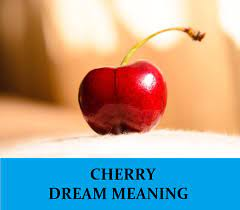
Spiritual Meaning Of Cherries
Spiritual meaning of cherries in the bible
Cherries hold significant spiritual meaning in the Bible. In various verses, cherries are mentioned symbolically, representing different aspects of spirituality and divine connection. For example, Song of Solomon 2:3 states, “As the apple tree among the trees of the wood, so is my beloved among the sons. I sat down under his shadow with great delight, and his fruit was sweet to my taste.” Here, cherries can be interpreted as the fruit of love and a reminder of the sweetness that comes from a deep spiritual connection.
In the book of Revelation, cherries are associated with the Tree of Life and are often referred to as the “fruit of the Spirit” (Galatians 5:22). Just as cherries are a delightful treat to the taste buds, the spiritual meaning of cherries in the Bible symbolizes the joy and fulfillment that comes from a relationship with God.
Spiritual meaning of cherries in dreams
When cherries appear in dreams, they carry a profound spiritual meaning. Dreams are often considered a way for the subconscious mind to communicate with our waking selves, and cherries in dreams can be seen as a symbol of spiritual growth and abundance.
Seeing ripe, plump cherries in a dream can signify the arrival of positive energy, new opportunities, and the fulfillment of desires. It may indicate that a period of spiritual awakening or transformation is on the horizon. Eating cherries in a dream can represent nourishment for the soul, suggesting that one’s spiritual journey is being nourished and fulfilled.
Alternatively, dreams about cherries can also serve as a reminder to stay grounded and maintain balance in life. Just as a cherry tree needs strong roots to bear delicious fruits, cherries in dreams can symbolize the need for a solid spiritual foundation.
What do cherries symbolize sexually?
Cherries have long been associated with sexuality and eroticism. The vibrant red color and luscious appearance of cherries have led to their symbolic representation of sensuality and desire. In the realm of sexuality, cherries often symbolize virginity and purity. The phrase “popping the cherry” is often used to refer to the loss of virginity.
Cherries can also represent the pleasure and indulgence experienced during sexual encounters. The act of eating cherries can be seen as a metaphor for sensuality and the enjoyment of physical pleasure. In some cultures, cherries are even said to enhance sexual desire and stimulate arousal.
However, it is important to note that the symbolic meaning of cherries in a sexual context can vary depending on cultural and personal interpretations. What matters most is how individuals perceive and relate to these symbols in their own lives.
—
Spiritual Meaning Of Cherries
Cherries symbolism
Cherries have deep symbolic meaning beyond just their biblical references and sexual connotations. In various cultures and traditions, cherries are often seen as a symbol of abundance, prosperity, and good fortune. Their vibrant red color is associated with vitality, passion, and life force energy.
In Chinese culture, cherries are considered a lucky symbol of harmony, fertility, and eternal youth. They are often included in festive celebrations and are believed to bring about happiness and good luck to those who consume them.
In Japanese culture, cherry blossoms hold great significance as a symbol of beauty, transience, and the fleeting nature of life. The blooming cherry blossoms represent the arrival of spring and are celebrated during the Hanami festival, where people gather to appreciate their exquisite beauty.
Overall, cherries symbolize the sweetness of life, the beauty of nature, and the blessings that can be found in abundance.
What do cherries symbolize in the Bible?
In the Bible, cherries symbolize various spiritual aspects. One significant mention of cherries can be found in the book of Jeremiah (24:1-4). In this passage, God shows Jeremiah a vision of two baskets of figs: one filled with good, ripe figs, and the other filled with bad, rotten figs. Cherries are alluded to as the good figs, representing the righteous and faithful ones whom God will restore and bless.
Furthermore, cherries can be seen as a metaphor for the fruit of the Spirit mentioned in Galatians 5:22-23. Just as cherries are delicious and delightful to taste, the fruit of the Spirit represents the qualities that should manifest in the lives of believers, such as love, joy, peace, patience, kindness, goodness, faithfulness, gentleness, and self-control.
Cherries also symbolize the spiritual connection to God, the sweetness of His love, and the joy of His presence. They remind believers of the fruitful rewards that come from cultivating a deep relationship with the divine.
—
Spiritual Meaning Of Cherries
Double cherries spiritual meaning
Double cherries hold a special spiritual meaning. The image of two cherries connected and growing together represents a profound energetic and spiritual connection. It signifies the union of two souls or the pursuit of a deep spiritual bond.
Double cherries represent love, partnership, and the harmony achieved when two individuals come together in commitment and mutual respect. They symbolize the journey of two souls intertwined in a shared spiritual path, supporting each other’s growth and evolution.
Seeing or encountering double cherries can be a reminder to seek and nurture relationships that bring spiritual fulfillment and serve as catalysts for personal and collective transformation. They serve as a visual reminder of the power of unity, cooperation, and connection in our spiritual journey.
What do two cherries symbolize?
Two cherries symbolize balance, harmony, and the duality of existence. They represent the delicate dance between opposites – yin and yang, light and dark, masculine and feminine, and other dualistic forces that exist within creation.
The two cherries serve as a reminder of the importance of finding equilibrium, both in our external interactions and internal states. They symbolize the need to embrace both our light and shadow aspects, integrating them into a unified whole.
Furthermore, two cherries can represent the concept of partnership and the exploration of divine love. Just as cherries grow in pairs, the presence of two cherries in symbolism emphasizes the power of love, cooperation, and shared experiences in our spiritual journeys.
Cherry tree symbolism
The cherry tree holds profound symbolism in various cultures and spiritual perspectives. It is often associated with renewal, rebirth, and the cycle of life. The blossoming of cherry trees represents the arrival of spring and the beauty that emerges after a period of dormancy and darkness.
In Japanese culture, cherry blossoms (sakura) are symbolic of the transient nature of life, reminding individuals to appreciate the present moment and the fleeting beauty of existence. The cherry tree is also a potent symbol of love and femininity.
Moreover, the cherry tree is a powerful reminder of patience and the rewards that come from nurturing growth and potential. Just as the tree bears fruit in its due season, our spiritual journeys require patience, perseverance, and the understanding that growth takes time.
The cherry tree, with its delicate pink or white blossoms and tasty fruits, calls upon us to savor life’s sweetness, appreciate the magnificence of nature, and honor the continuous cycle of renewal and growth.
Spiritual Meaning Of Cherries
Cherries are a sweet fruit, and they can be eaten in many different ways. They are also used to make beverages like cherry juice and cherry soda. Cherries are one of the most versatile fruits on the planet, which is why we chose them as our topic of study.
Cherries have been used in religious ceremonies for centuries, but their spiritual meaning has often been misunderstood or misinterpreted. In fact, even today there are many people who think that cherries symbolize death rather than rebirth or renewal. But this is not true!
Cherries have always been associated with life, love, and joy. The cherry blossom tree represents feminine energy and beauty in Japanese culture, while Koreans use the symbolism of cherries to celebrate the birth of a baby boy or girl (because their flowers bloom first).
In ancient Egypt, cherries were known as “food of the gods.” They were considered so sacred that only royalty could eat them—and even then only on special occasions like coronations or marriages!
The cherry is a symbol of love and compassion.
The cherry blossom represents the fragility and beauty of life, as it blooms for a brief moment before falling away to make room for new growth. The cherry blossom is also associated with the feminine energy, which is why it’s often used in weddings.
Cherries are also associated with springtime and renewal, which makes them an appropriate gift to give during this time of year.
When you think of cherries, you likely think of their bold pop of color, their sweet and luxurious taste, and their frequent presence in popular desserts. But for centuries, cherries have played important roles in art and literature, especially when it comes to symbolism.
Of course, depending upon the work in which cherries appear, their meaning varies. Much of that variation stems from the era in which the work was produced. Want to learn more about the meaning of cherries? We’re delving into the symbolism of cherries throughout art and literature below.
History of Cherries
The sweet cherries we know and love today originated in Asia — in the rich soil between the Caspian and Black Seas. The earliest known reference to cherries is in History of Plants by Greek philosopher Theophrastus, who lived from 371 to 287 BCE. How cherries got from Asia Minor to Europe remains something of a mystery, but the common belief is that birds carried them between the continents.
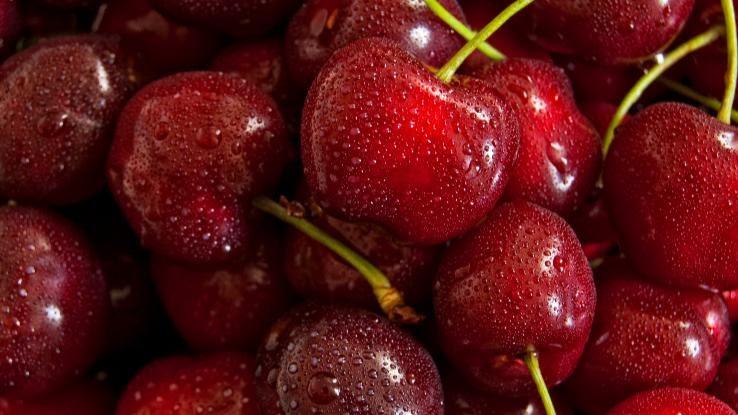
Early colonizers eventually brought cherries to America by ship in the 1600s. In the centuries since, cherries have spread in popularity throughout the world, appreciated and embraced by everyone from Roman conquerors to Chinese aristocrats, from working-class immigrants to amateur and professional chefs alike.
What Do Cherries Symbolize In Literature
Have you ever asked yourself, “What do cherries symbolize?” If so, you might be surprised to find that the answer varies largely depending upon what moment in history you’re looking at. For example, medieval art and literature imbued cherries with a sacred significance. In “The Cherry-Tree Carol,” a Christmas ballad sung as early as the fifteenth century, the pregnant Virgin Mary and Joseph travel to Bethlehem for the census. Along the way, they stop to rest in a cherry orchard, and Mary asks Joseph to pick cherries for her to eat and nourish the unborn child.
Spitefully, Joseph tells her the father of the child, and not he, should pick the cherries. Jesus, still growing in Mary’s womb, speaks to the cherry tree and orders it to lower one of its branches to allow Mary to pick from it. When the branch indeed lowers, Joseph repents for his angry words.
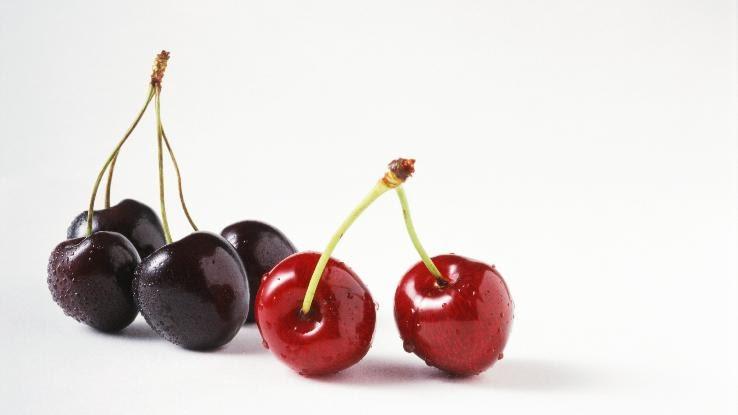
In the fifteenth century, Wakefield Master’s The Shepherd’s Play is another incidence of cherries as a sacred symbol. When the poverty-stricken shepherds visit Mary and the Christ Child in the stable, they bring lowly gifts because that’s all they can afford. The first shepherd gives Mary and Jesus a bunch of cherries. In this regard, the cherry is a humble — but acceptable — substitute for treasure.
Moreover, the medieval chivalric romance Sir Cleges tells the story of a poor knight who prays beneath a tree, asking that he and his family attain wealth. When he looks up, the tree is covered in cherries — a miracle. This portends good things to come. He and his son take the cherries to the king, who, out of gratitude for this miraculous gift, provides them with wealth and means.
Over time, cherries took on a more secular meaning, becoming associated with sex. Writers viewed cherries as ripe, full, and waiting to burst, all appropriate euphemisms for the erotic, especially as it relates to virginity and the male anatomy. For example, in William Shakespeare’s A Midsummer Night’s Dream, Thisbe proclaims, “My cherry lips have often kissed thy stones.” Some scholars believe that the “stones” in this sentence refer to testicles.
Seventeenth-century English lyric poets Josuah Sylvester and Robert Herrick compare cherries to nipples and breasts. Also in this period, English poet Charles Cotton likens a maiden’s pubic hair to black cherries, and author John Garfield refers to sex as “playing at the Bobb-Cherry.” In their erotic novel The School of Venus (1655), French authors Michel Millot and Jean L’Ange compare the tip of a man’s appendage to a cherry.
As time passed, the erotic symbolism of cherries became even more direct. The Oxford English Dictionary records 1889 as the year of the first modern reference to the cherry as a symbol for the hymen. Lexicographer Jonathon Green traces the origins of virgins “losing” their hymen — a.k.a. their “cherry” — to the early years of the twentieth century, when it entered mainstream slang.
Modern works featuring cherry symbolism include Vladimir Nabokov’s Lolita; Jeanette Winterson’s Sexing the Cherry; and songs like “Cherry Pie” by Warrant, “Cherry Red” by ZZ Top, “Cherry Cherry” by Neil Diamond, “Cherry Bomb” by The Runaways, and “Blow” by Beyoncé.
Spiritual Meaning of Cherries
In Christian texts, cherries’ spiritual meaning centers primarily on the miraculous and the divine. The fruit often grows or appears in unlikely circumstances, serving as evidence of god’s wondrousness and glory. The spiritual significance here is that with god, all things are possible — as shown when a cherry tree bends to allow its fruit to be picked.
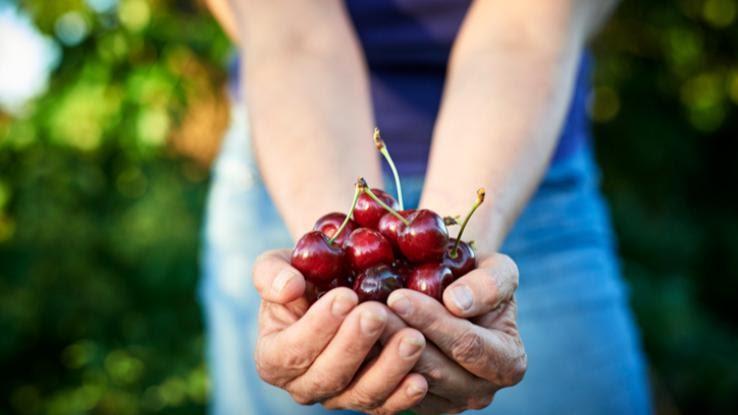
Moreover, Japanese culture has associated cherries with the spiritual concepts of life, death, and rebirth. This gives them a special significance when presented as a gift. The Japanese offered cherry blossoms to Kamikaze pilots to honor their actions during World War II. Japan has also honored its relationship with the United States by sending cherry trees as a symbol of friendship and unity.
Cherry Symbolism in Art
Cherries appear throughout works of visual art, including paintings and embroideries. They typically represent good fortune, celestial wealth, and the fruit of paradise. In some paintings, they are the focal point of the entire picture. In others, they dangle discretely from a subject’s hand or, as is the case in a famous painting of Elizabeth I, from the ears.
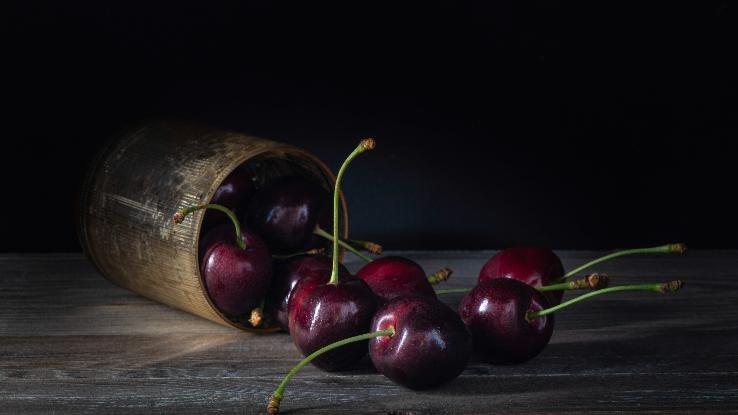
Cherries feature, in varying degrees, in a number of famous paintings, including The Cherry Gatherers by François Boucher, Girl Under the Cherry Blossoms by Émile Vernon, Madonna with Cherries by Tiziano Vecelli, Cherries by Virginia Granberry, and The Boy with Cherries by Edouard Manet.
The meaning of cherries in art and literature runs the gamut from the lofty and sublime to the sexual and devout. To understand what cherries represent, you need to look at the context of the work in which it was used and the era in which it was produced. However, no matter the context, it’s clear that cherries are ripe with meaning.
Cherry Symbolism Christianity
In the Christian artistic tradition, nothing is without meaning. Known for their sweetness, cherries symbolize a sweet character and the sweetness of Paradise. The Christ child is often shown holding a cherry. The history of cherries—the actual sweet-and-sour stone fruit—extends all the way back to prehistoric Europe and West Asia, when people were plucking and eating them off wild trees. The cherry’s legacy also has some history as a symbol of sexuality.
What Do Cherries Symbolize Sexually
The ruby red cherries resemble a particularly juicy derrière. And, if butts aren’t your bag, you can even use the cherries as a euphemism for breasts and balls.